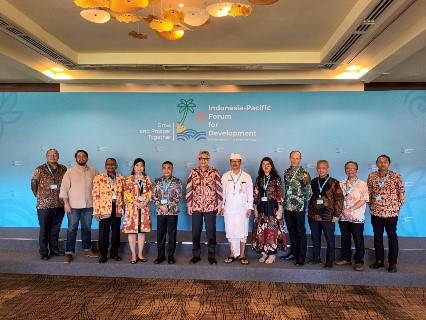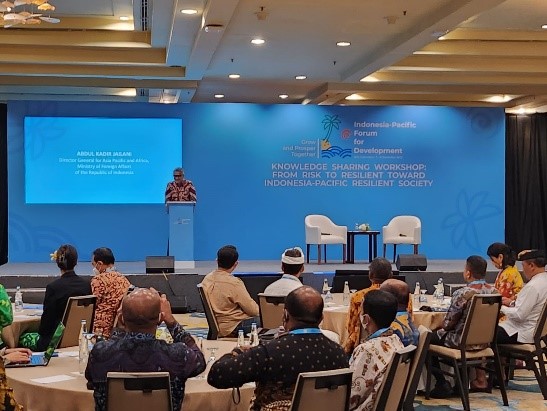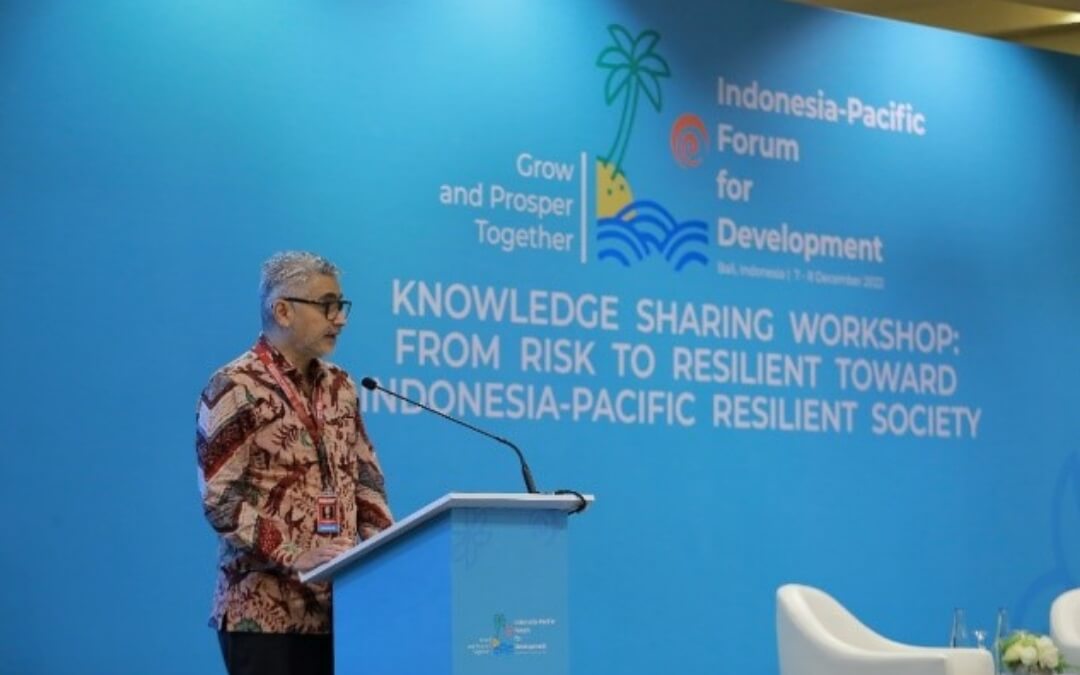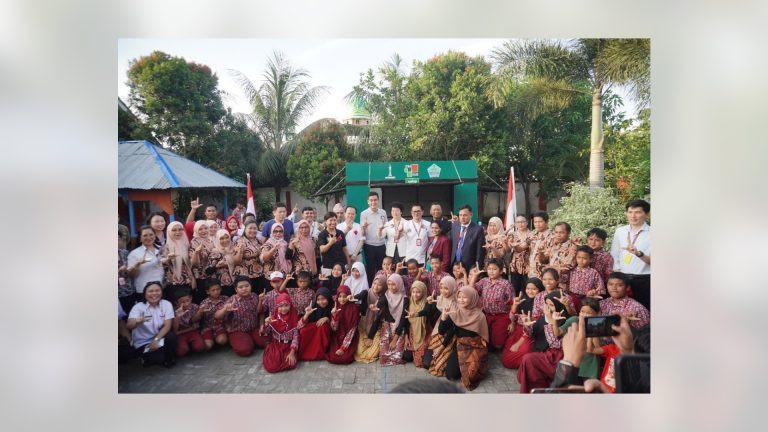December 7-8, 2022 | UCLG ASPAC once again took the opportunity to have the Knowledge Sharing Workshop on Disaster Risk Reduction (DRR) and Resilience as part of the Indonesia-Pacific Forum for Development (IPFD) in Bali, December 7-8, 2022.
Under the IPFD event initiated by the Ministry of Foreign Affairs (MoFA) of Indonesia, a series of workshops on disaster management, women’s economic empowerment, and capacity building for micro, small and medium enterprises (MSMEs) in the digital era were organised. This is the first for UCLG ASPAC to collaborate with MoFA Indonesia for the IPFD side event.
At the opening of the Workshop series, the Director General for Asia Pacific and African Affairs of the Indonesian Foreign Ministry, Ambassador Abdul Kadir Jailani, emphasised that as a Pacific Family, Indonesia and the Pacific must nurture cooperation to face global challenges together and that knowledge sharing is essential.
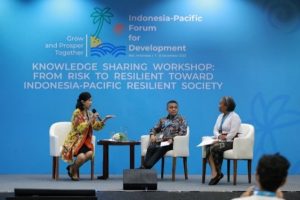
During the workshop, Mayor of Palu, Mr. Hadianto Rasyid shared that after the 2018 disaster, Palu city has evaluated and renewed the master plan and policy, such as how to increase the capacity of the people, especially the officials, and the plan to build a resilient village or Kelurahan Tangguh in 2023 that will also involve local leaders as the key person in charge of local DRR. He also shared his city’s experience in developing a system and technology for preparedness and response, such as creating a quick response team for people on the ground and having logistic storage.
Dr. Safrizal ZA, Director General of Regional Administration, the Ministry of Home Affairs of Indonesia shared the Indonesian government’s commitment to DRR policy formulation on minimum standard services by implementing the Ministry Degree Number 59 and Number 101 in 2018. The national strategy for implementing the minimum standard is by strengthening cross-stakeholders and collaboration to achieve targets, optimising the role of the university, optimising alternative funding sources, ensuring the integration of the programme, and capitalising the alternative funding resources for supporting local implementation.
Mr. Sanjaya Bhatia, the Head of the UN DRR Incheon Office, shared the importance of regional frameworks that helps the countries and subnational governments to have better planning on DRR and to be a support system for building resilience. Relating to the MCR2030, Mr. Sanjaya mentioned that 1400 cities have joined MCR2030. He also updated that the new MCR2030 focuses on “how to” so that city has a better understanding of risks, action planning, and strategy implementation. He also emphasised that cities can freely use the Scorecard Assessment tools for developing the action plan, as it has certain indicators and has a response phase including the identification of gaps for improvement. It will further help to create a dialogue between stakeholders in the city.
Ms. Diyah Perwitosari, Coordinator of Siap Siaga Bali Province, shared her experience working with Private companies in Bali Resilience Programme, including collaboration with the local DRR Taskforce with members from various institutions (private sectors, hotels, Non-Governmental Organisations, university, and community).
The Workshop’s Session was facilitated by Dr. Bernadia Irawati Tjandradewi who also delivered a closing remark and highlighted the important coordination between all stakeholders including the local community both in the Response and Mitigation steps. Finally, she concluded with the statement ‘’The future is uncertain, and we should be ready and prepared for all the challenges despite our geographical condition.”
